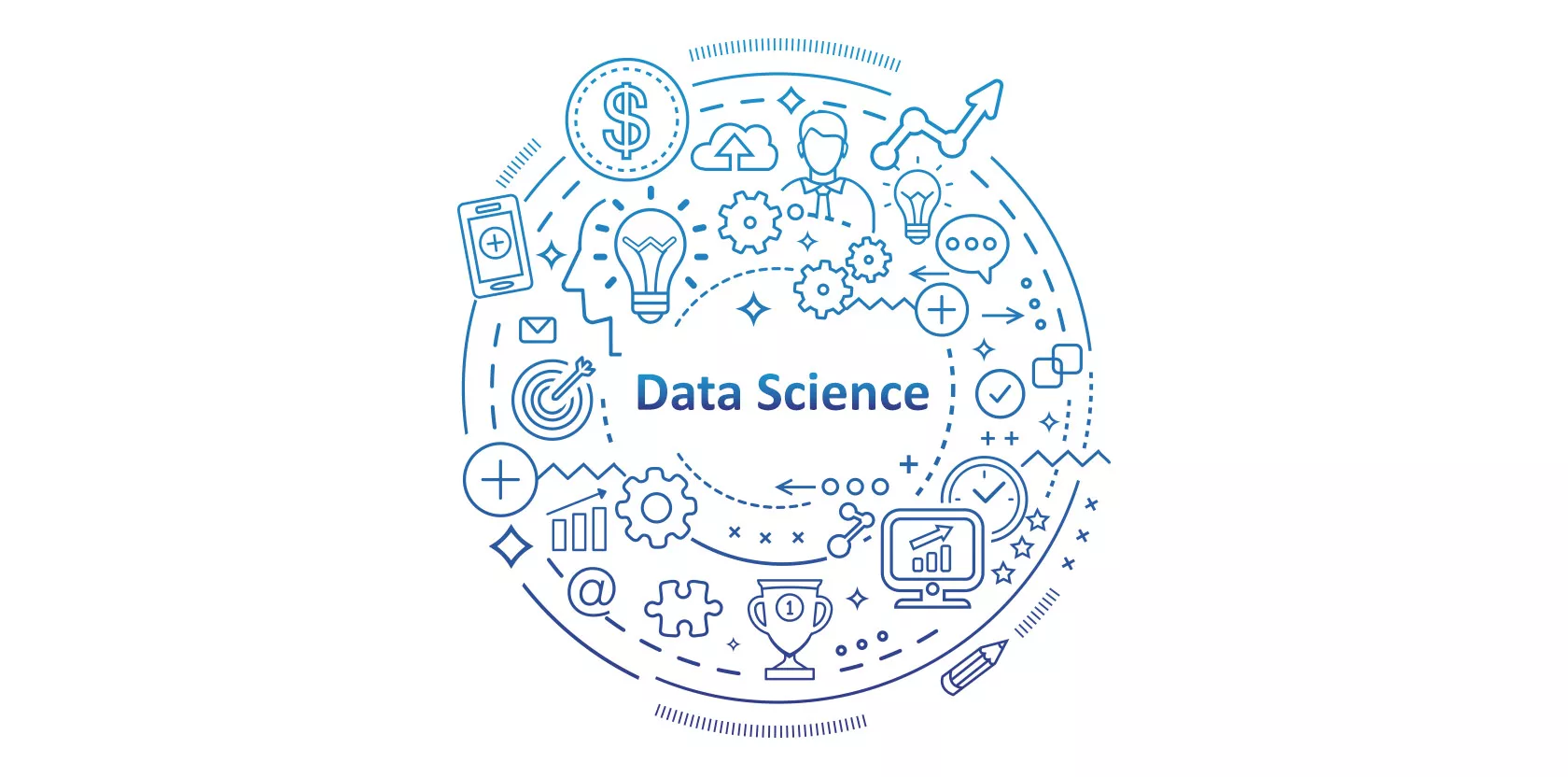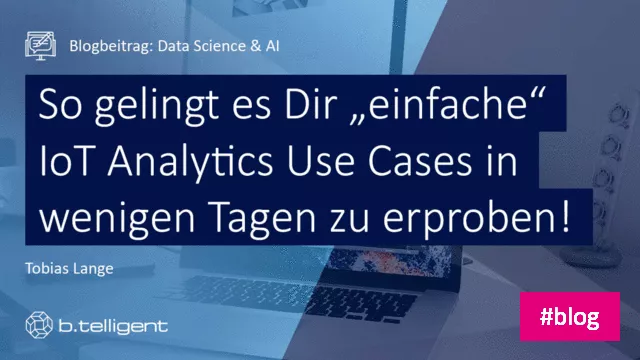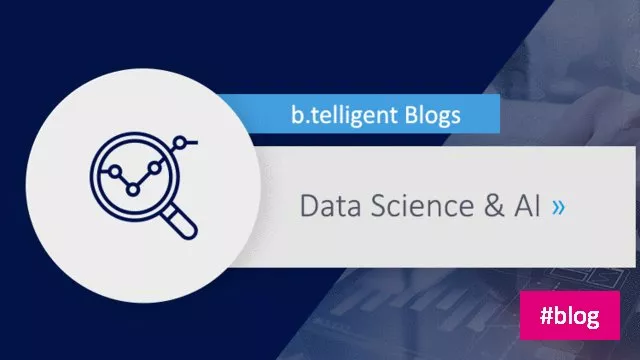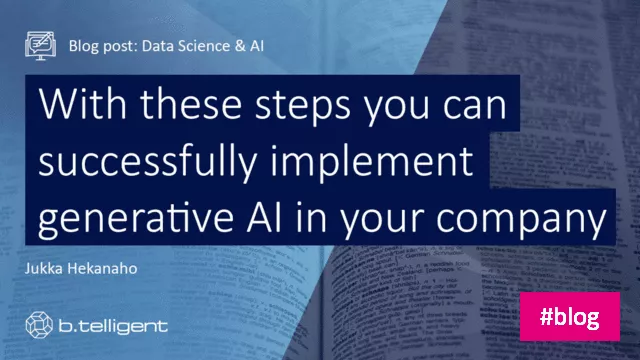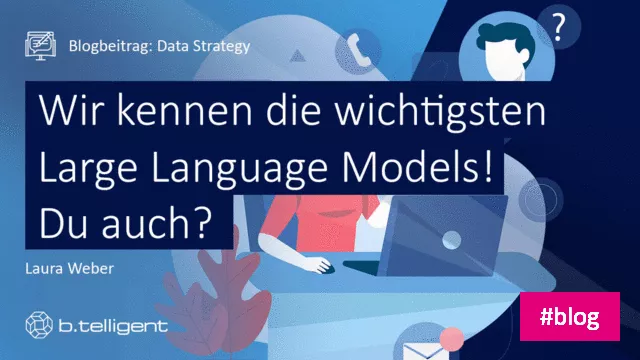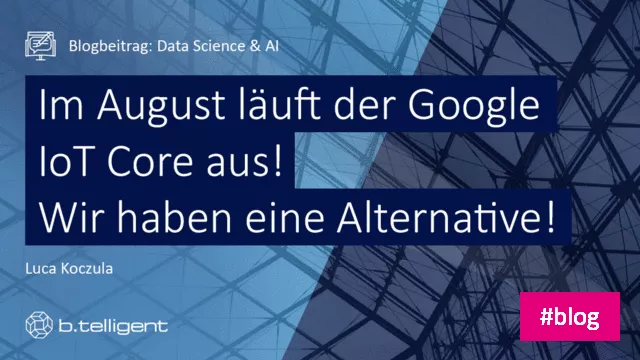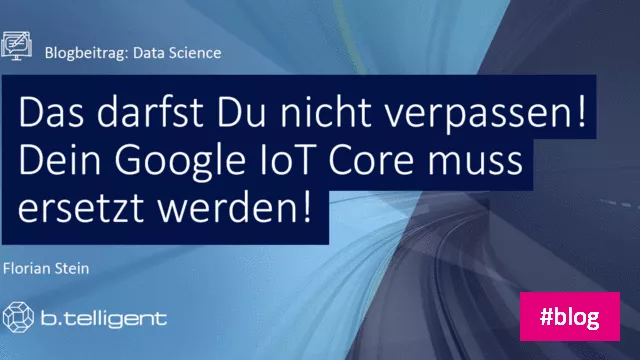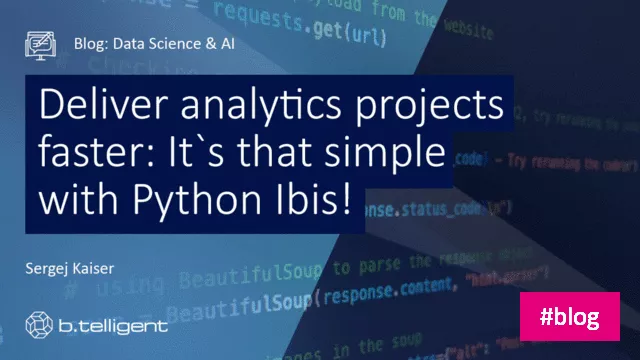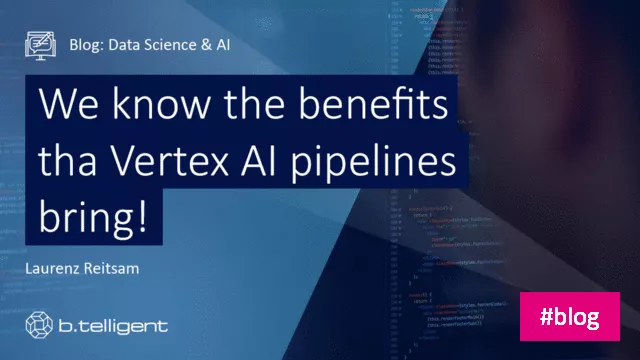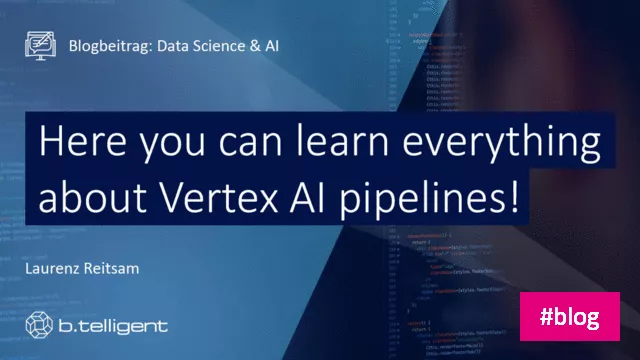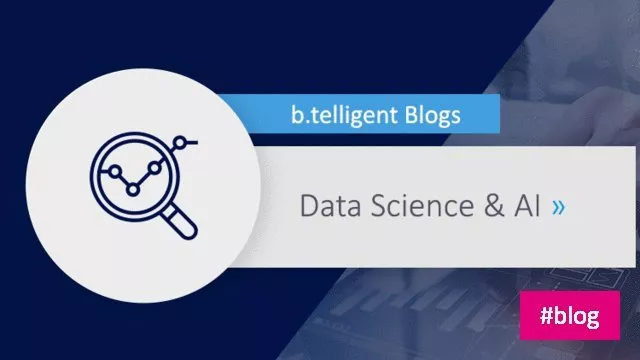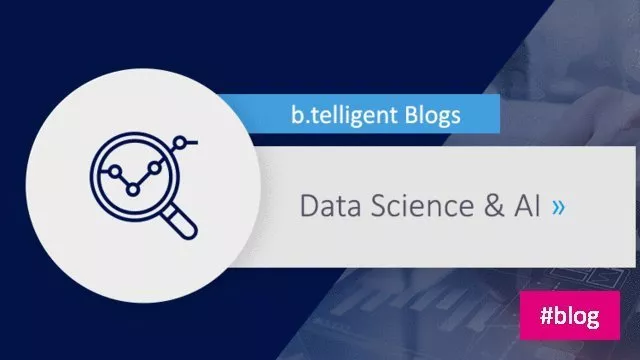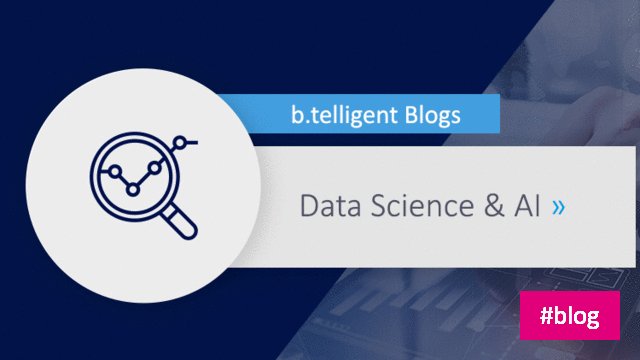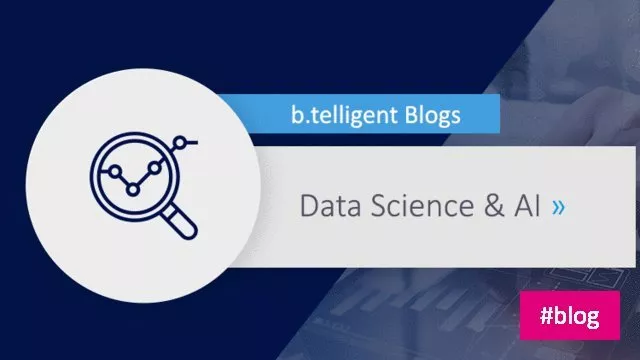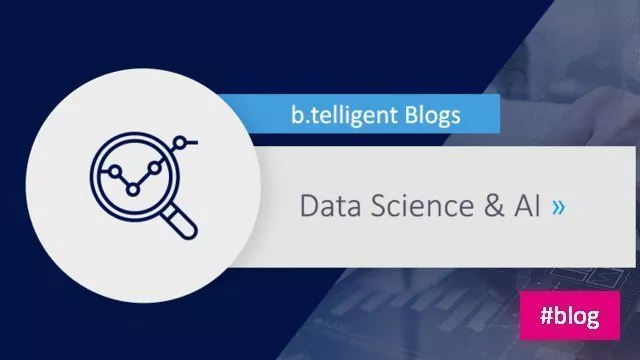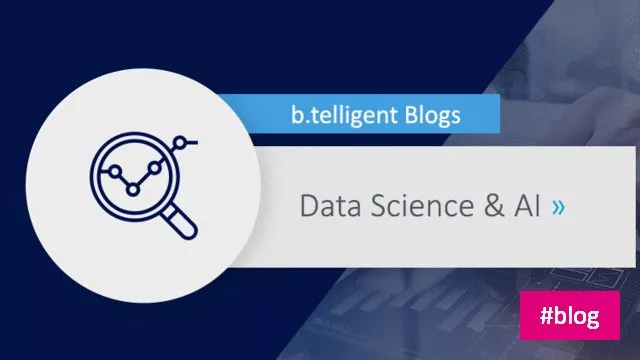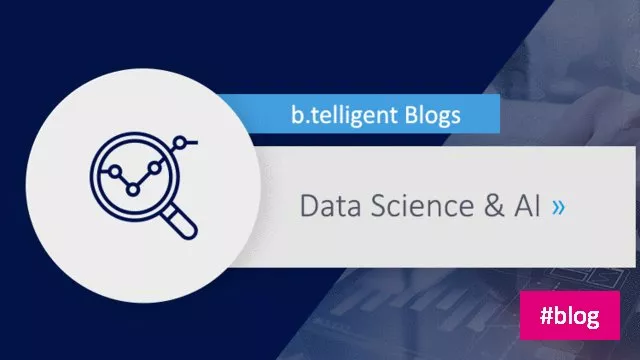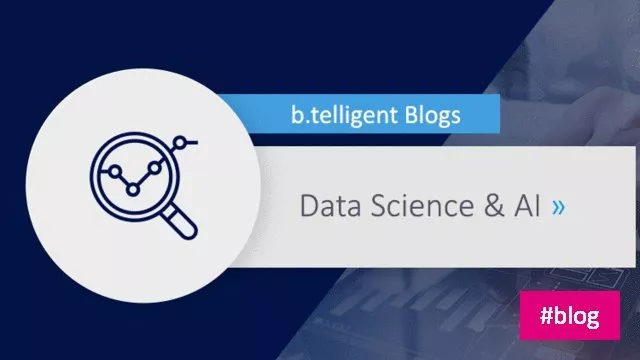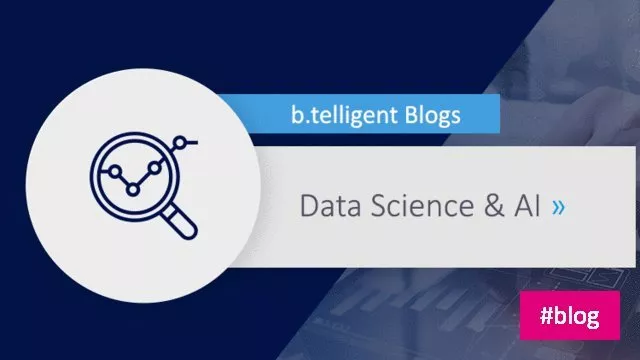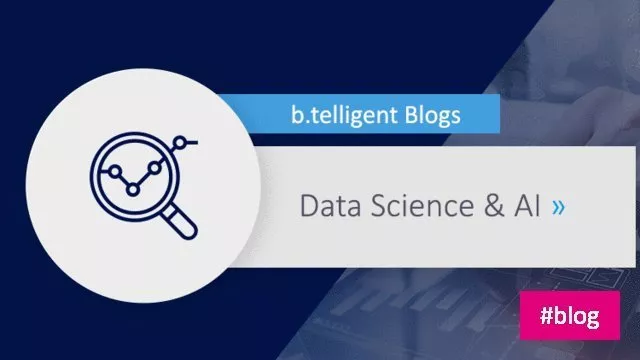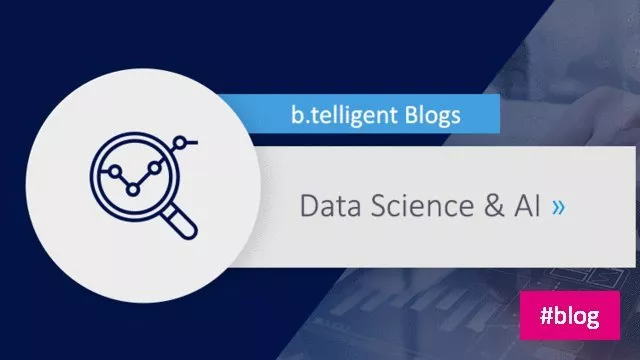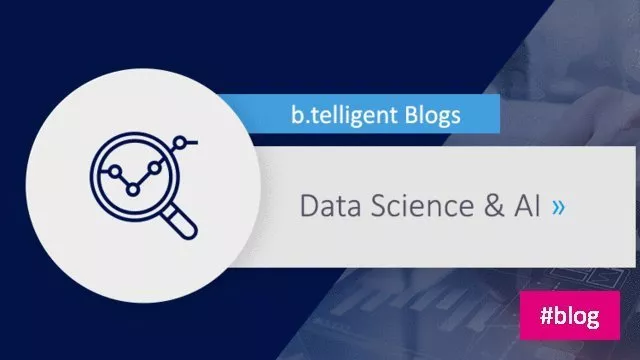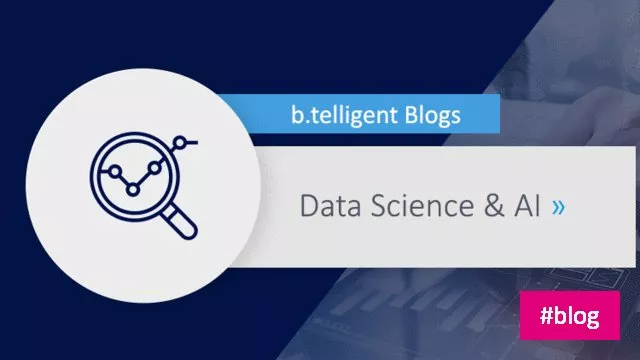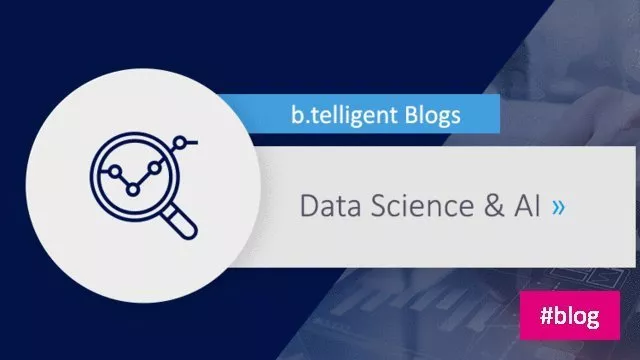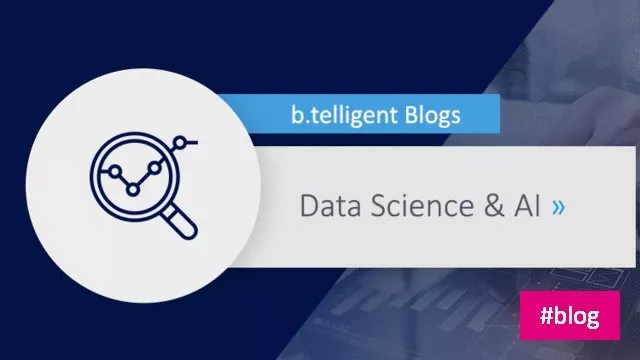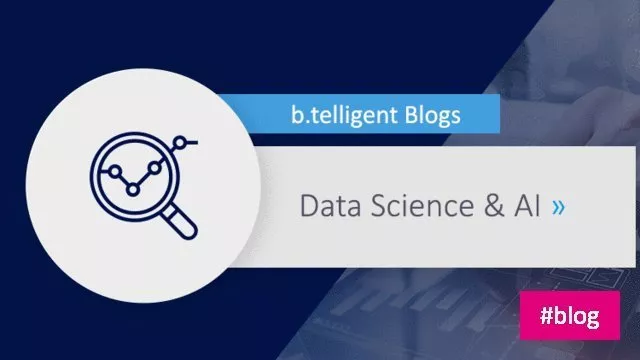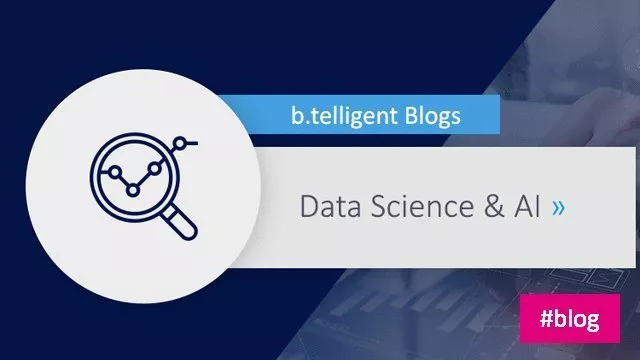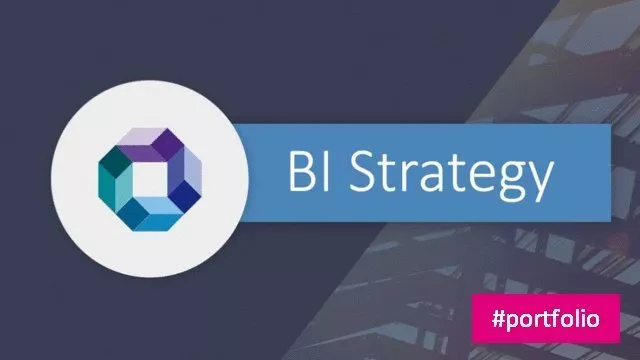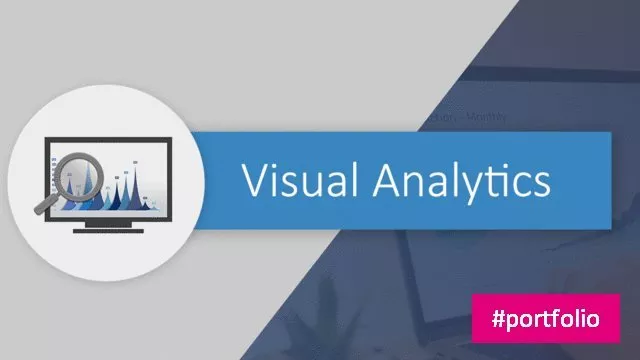Data Science and Artificial Intelligence
Ever more of our daily activities are sliding from the real into the digital world. Almost every action creates datasets: sensors and machines collect information from disparate sources and then save and process it, creating massive volumes of data, every second. Each of us leaves digital footprints in the Internet or via networked devices. Although hardly any enterprise still underestimates the associated potentials and opportunities, many enterprises still find it difficult to prepare, analyze and integrate data profitably into smart business models or processes. The methods of data science and artificial intelligence serve to identify useful patterns and structures in data and, ideally, translate them at once into automated actions. Data science and AI are thus your gateway to digitization.
The competence centre for data science and AI is obsessed with algorithms and their valuable application. We look forward to accompanying you on the next steps of your journey to digitization.
Data Science und Artificial Intelligence – what is the difference?
Artificial intelligence is often described as a purely self-learning system which needs no "coach", sets its optimization criteria itself, and eventually replaces natural intelligence. At b.telligent, artificial intelligence is instead associated with smart algorithms which we use selectively for our customers to utilize optimization potentials. With deep learning procedures, for example, we can improve text evaluations for sentiment analyses or embed automated image recognition in prediction models. Artificial intelligence can also be used to reduce your call centre workload through speech recognition or chatbots.
Data science is meant to extract (economically useful) knowledge from data with the help of mathematical algorithms. Artificial intelligence involves imitating intelligent actions with the help of mathematical algorithms, with a special consideration of how to deal with uncertainty and learn continuously from new situations.
Automation of business processes with algorithms has been part of the consulting portfolio for several years since b.telligent was founded. Ranging from business analytics to advanced analytics and data science, this topic is now also described as artificial intelligence via the association with deep learning. For us, deep learning is a natural extension of our tool box, which is becoming increasingly relevant.
Evidently, the two expressions are not clearly separable and belong together. AI is significantly closer to the product, which is often ultimately represented by an application or a feature. The expression AI is often linked directly with added value via a product, whereas data science deals to a greater extent with knowledge generation, for example, in the form of customer insights, thus also enabling recommendations for action and making interpretation an important aspect.
"b.telligent's approach to data science and AI combines outstanding expertise from many practical projects and sound data-science skills of our experts with the latest techniques in data science and AI. The aim is to use mathematical algorithms to give you a head start for your business."
Dr. Sebastian Petry
Competence Center Leiter Data Science & AI
With Data Science and Artificial Intelligence – procedures at a Data Science department
The well-known phase model CRISP-DM is used for structuring in many of our projects, and often combined with agile elements such as Scrum and Kanban. The steps comprising business and data understanding are important components of our data science consulting approach, just as data preparation (feature engineering) and modelling, often regarded as the actual data science. We are convinced that an optimal solution to a problem begins with an exact understanding of the problem.
Modern Data Science departments operate mainly in the 2 different ways
These two procedures adopted by a data science team are by no means mutually exclusive. In the ad-hoc mode, for example, prototypes for applications are often developed and valuable insights are provided for the end product of a data science team; briefly speaking, our data science consulting approach supplies everything ranging from use case creation through PoC to the application. B.telligent has already helped several companies establish a data science department and integrate it into everyday processes. Data science coaching, enabling, set-up as well as technical and organizational structures are part of our work here.
Our partner network in the field of Data Science & AI









Data Analytics, Predictive Analytics, Machine and Deep Learning - our tool box
Your enterprise requires flawless data analysis to ensure that you make the best possible decisions. The analysis possibilities of data science are also reflected in the data science maturity model:
- Descriptive Analytics: Description and measurement of events.
- Diagnostic Analytics: Description of contexts through statistical procedures. "Why something happens."
- Predictive Analytics: Prediction of future events or actions.
- Prescriptive Analytics: Recommendation and automation of actions based on predictive analytics.
Stages of Data Science Development
Descriptive and diagnostic analytics are always used with innovative approaches to data and business understanding in our projects. Our data science team is adept at the most advanced methods to analyze and predict future behavior. . This includes problem areas and procedures such as the following:
Predictive Analytics
Existent data are used here to forecast future events or values from complex data structures. Dieses Wissen hilft dem Management, bessere Entscheidungen zu treffen.
Regression
The eternal classic. A parametric model is specified here, and the parameters are assessed using algorithms. The advantage of these models is that they can be well interpreted and are very familiar. Generated here in addition to good forecasts are valuable insights which help make informed decisions.
Machine Learning
These method classes contain, in particular, black-box procedures such as random forests, gradient boosted trees, support vector machines, neural networks etc. The models from these processes are difficult or even impossible to interpret, and used especially in the case of complex data structures if no model assumption can be made in advance. Emphasis is often placed here on the best possible prognosis, the model's interpretability being secondary.
Neural networks and deep learning
As one of the areas of machine learning, deep learning is dedicated to certain issues which are very difficult to explore using other methods, in particular, when it comes to image and audio processing. However, these method classes are also used in other complex data situations involving, for example, web log data or complex time series problems.
Natural Language Processing
Learn more about your customers, thanks to an intelligent combination of spoken or written language. Modern techniques like Word2Vec, latent Dirichlet allocation (LDA), optical character recognition (OCR) and AI neural networks can be used to obtain and operationalize valuable information from language. Such models are often found in applications such as chatbots.
How is data-driven science revolutionizing the world of enterprises?
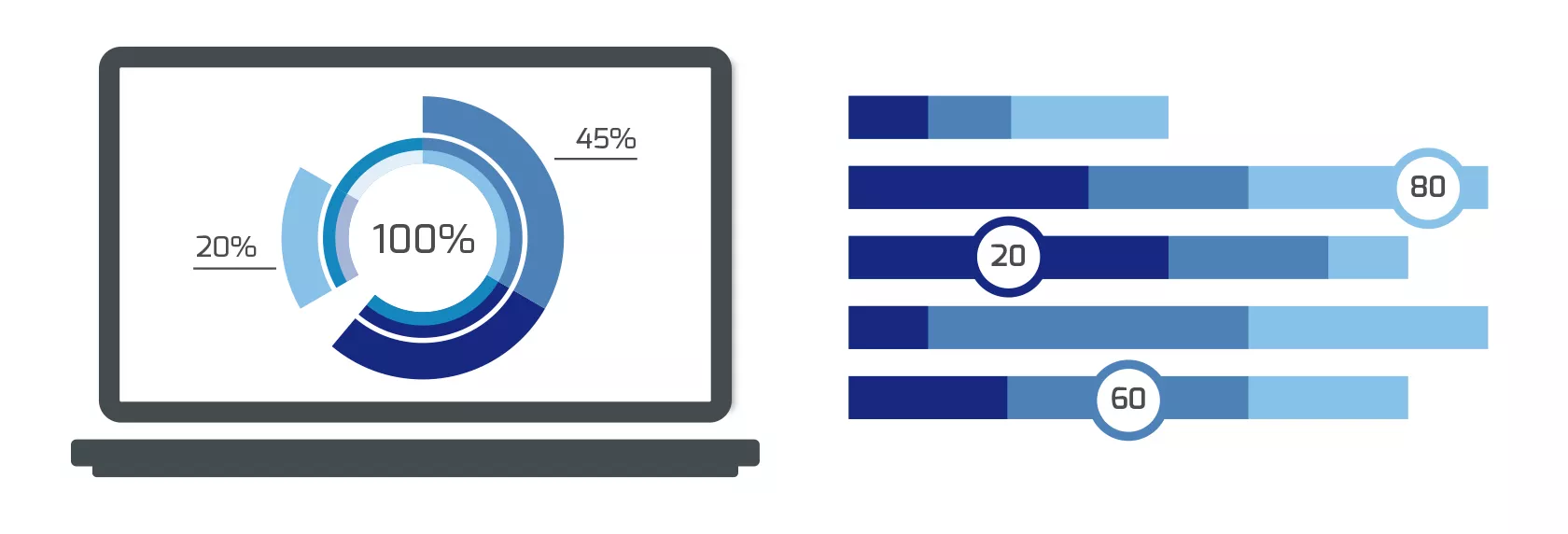
Big data, cloud technologies, data science and artificial intelligence are revolutionizing the world. The work of data scientists has already resulted in changes and progress in many fields. Though no one knows what will happen in the future, precise forecasts on the basis of existent data are possible thanks to methods such as predictive analytics, machine learning and deep learning.
By deploying machine and deep learning techniques, your enterprise can handle the growing pressure from competitors and stay abreast of ever-increasing demands by customers. Moreover, data science enables you to gain competitive advantages and meet the challenges of digitization.
The success of digitization at a company depends on the use cases. Data science or AI cannot turn a poor use case into a good one. Two essential approaches can ("können") be identified for use cases:
- Automation and optimization: A familiar use case is automated and optimized through new methods and resultant, newly available data. For example, one converts their selection logic for operation with neural networks and uses weblog data in non-aggregated form for this purpose.
- New business models: New use cases are only made possible on the basis of new methods and technologies. As a result of predictive maintenance for machine data, for example, goods are no longer purchased but leased, and the maintenance and insurance businesses become new drivers for manufacturing companies which previously sold goods and often outsourced maintenance to external parties.
An important factor in all use cases is that highly complex data structures can now be deployed. This offers enterprises an inconceivably wide range of possibilities which should be exploited. Technical and algorithmic borders have shifted extremely in the last 3 years. Modern data science and AI can help you utilize new free spaces for your enterprise.
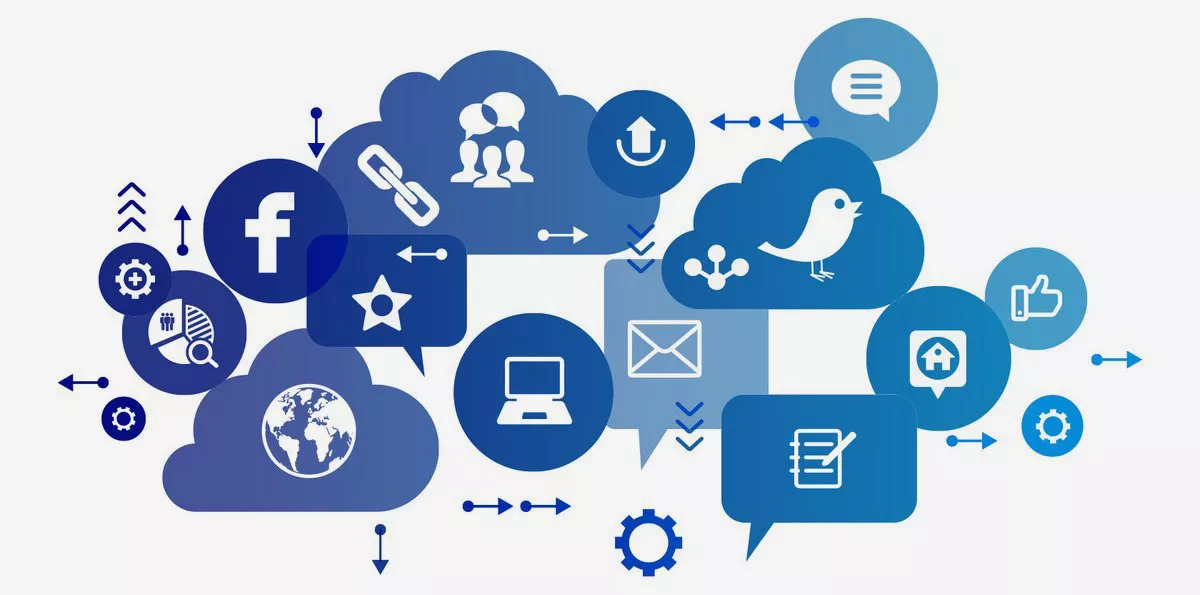
Social Media Analytics – Made feasible by Data Science and Artificial Intelligence
Application of social media analytics in marketing is bolstering the scope of duties for data scientists. Monitoring and scientists' use of latest technologies such as natural language processing help segment the flood of information available via social media tools such as Facebook, LinkedIn, Twitter and Instagram, understand the contexts quickly, identify new themes in the market and generate new predictors for models. In the next step, predictive analytics enables your enterprise to foresee customer behavior on diverse platforms.
The right social media analytics software
The market for social media analytics and digital communications software is highly dynamic, with a plethora of innovative suppliers offering many pros and cons. As a technology-neutral consulting firm, at b.telligent we are in the position to perform unbiased, competent, manufacturer-neutral media analyses, and to issue tenders and select the best software for your enterprise’s target groups.
This approach will guaranty that by utilizing parameters like KPIs to social media channels and for monitoring purposes, your enterprise will secure a knowledge headstart and clear competitive advantages over the long-term – evidenced by your ability to rapidly analyze trends and opportunities for products and services, and quickly discover any disparagement of your products. This is particularly advantageous for social media campaigns and key business decisions.
Benefit from Data Science and Artifcial Intelligence through b.telligent
Want to take advantage of our experience and competencies in the field of data science technologies and methods to push the envelope of your enterprise’s development? As a consulting firm based in Munich, and with offices in other German cities and in Switzerland, we have comprehensive project experience and skills that underscore our solid strength to set up applications involving CLTV, NBA, and social media analytics. Furthermore, you can count on our consultants to help you develop data science strategies, and to empower you through predictive analytics, machine learning, and deep learning to make better-informed decisions and attain sustained competitive advantages.



